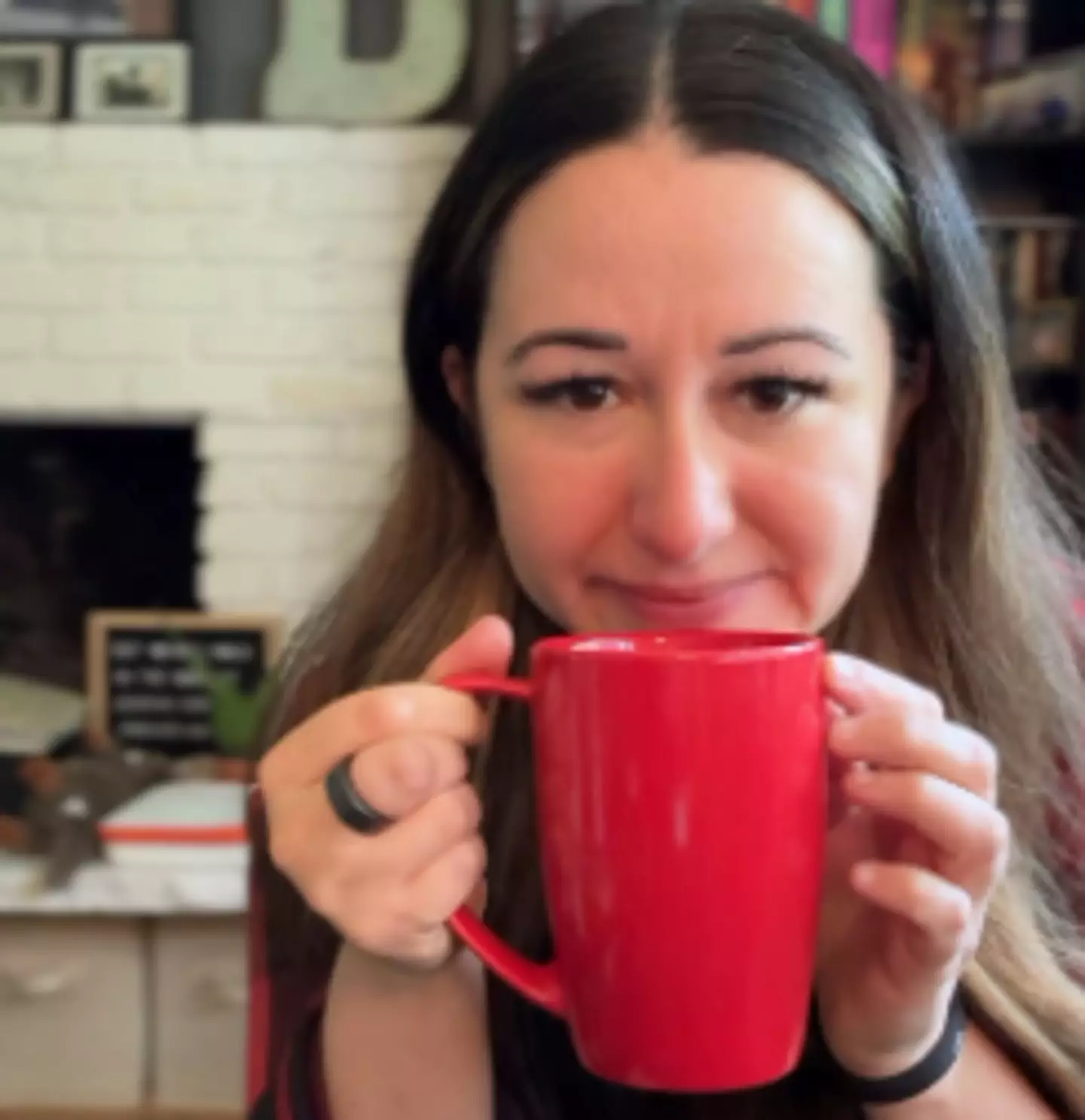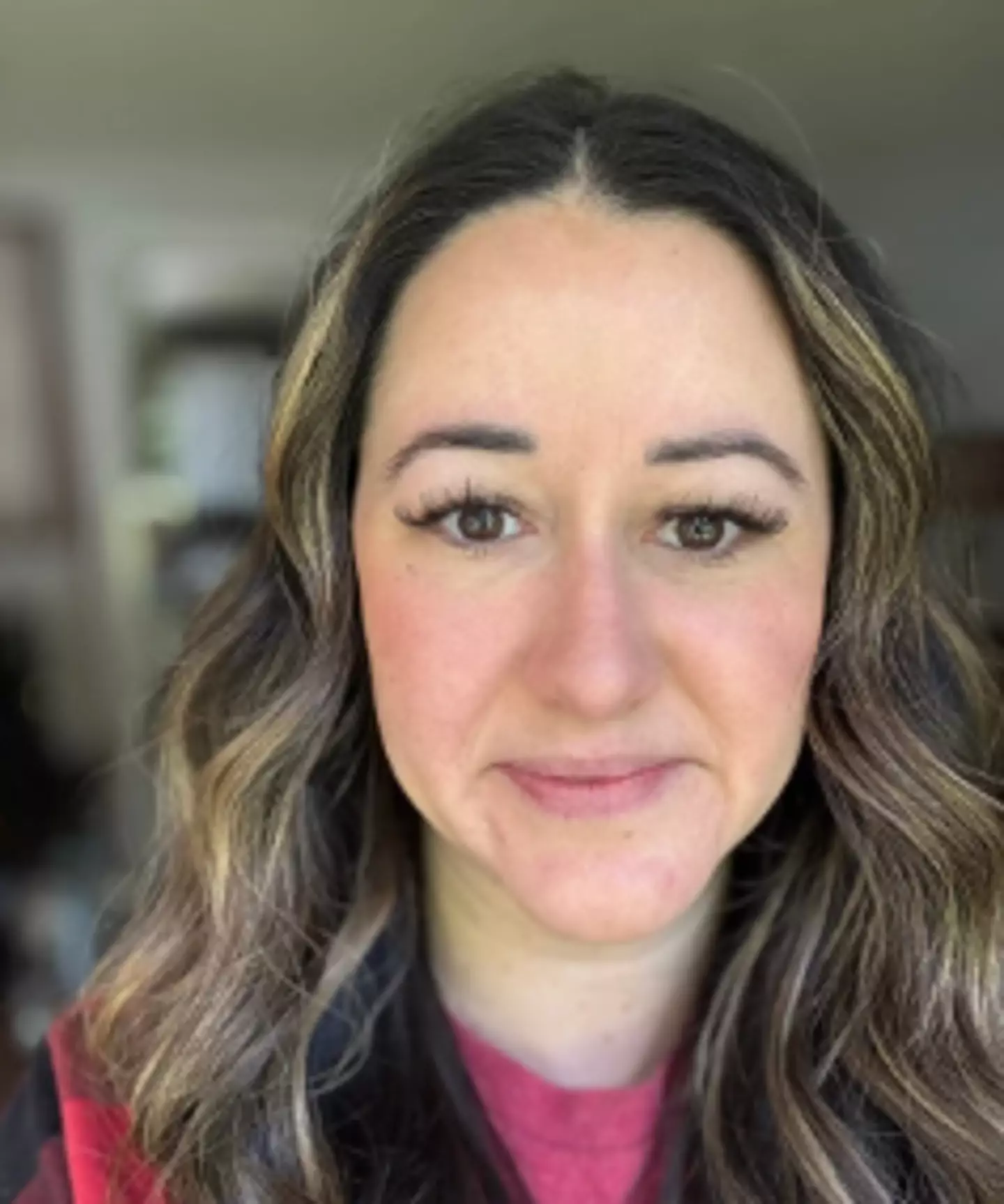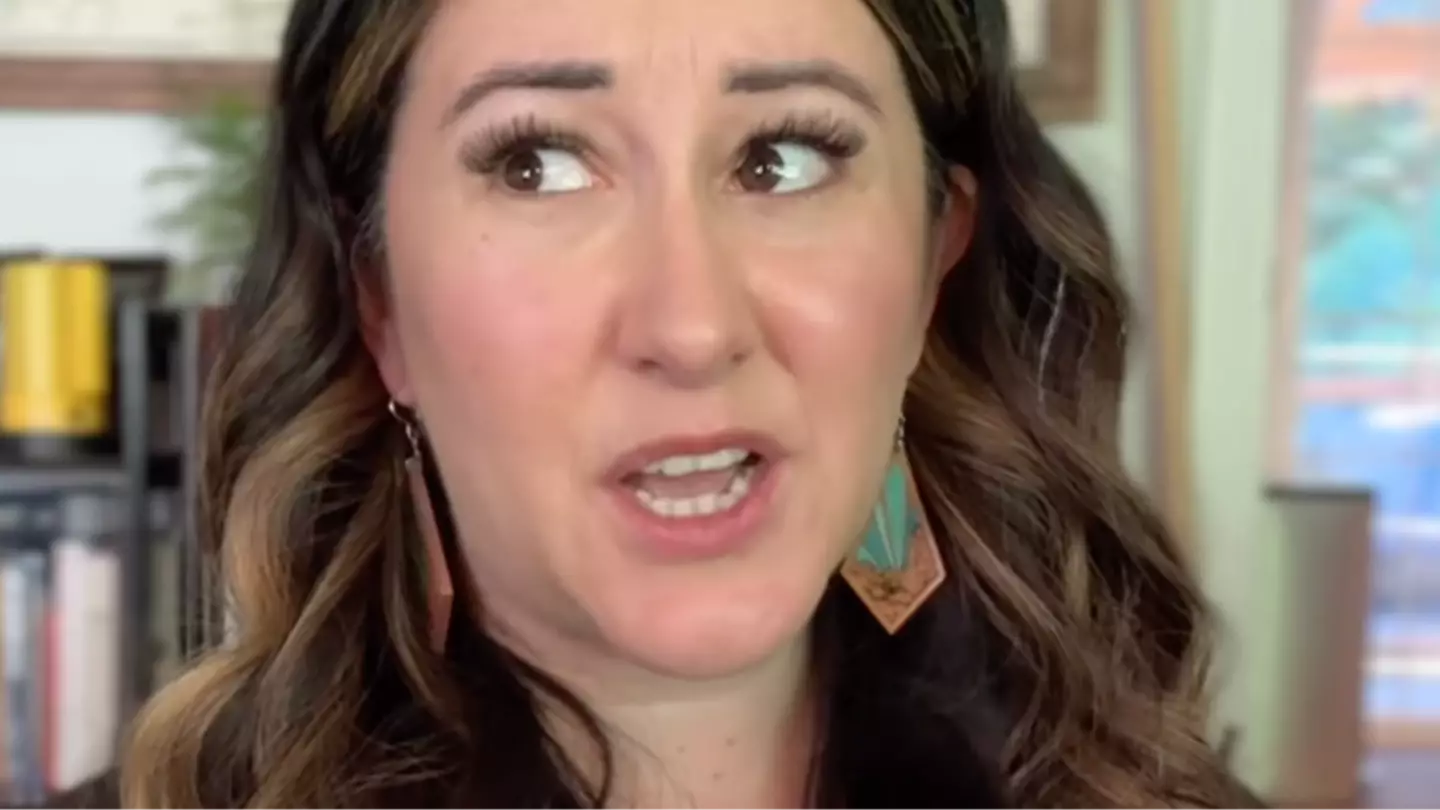A woman unexpectedly lost her sight after attempting a simple activity at the beach.
When Deborah Cobb was 19, a day meant for enjoyment at the beach turned into a prolonged and troubling experience.
Now 42, and residing in Seattle, Cobb recounted how she became blind, unable to operate a vehicle, read, or view television. Initially, medical professionals dismissed it as a sunburn-related issue.
Later, it was discovered that Cobb had damaged both eyes due to a seemingly harmless gymnastic stunt performed for amusement with her friends.
On that summer day, Cobb attempted to demonstrate how many consecutive cartwheels she could perform, completing 13 before feeling ‘extremely dizzy.’
Despite the absence of pain, the teenage Cobb sensed an issue with her vision.

“I decided to see how many cartwheels I could do in a row just for fun,” Cobb recalled to Newsweek recently, “So I started doing them and got to 13 and fell over super dizzy. My eyes were kind of spinning so it took a moment to realize that my eyes weren’t focusing.”
After the cartwheels, Cobb saw her friend as just a ‘giant orange blur,’ remarking: “My eyes wouldn’t fully focus.
“There was no pain, and my peripheral vision was fine, but everything I looked directly at was blocked by an orange blur.
“I was panicking inside, but not outwardly so my friends didn’t think anything of it,” she continued.
Though she attempted to maintain her composure for the remainder of the day, the next morning her vision had deteriorated, prompting a hospital visit.
“My central vision was completely gone… I couldn’t drive, I couldn’t read, I couldn’t see myself in the mirror… which meant I couldn’t put on makeup… I couldn’t even watch TV,” Cobb, who now serves as an integrative health practitioner and nervous system regulation coach, said.
Initial assessments by doctors suggested she had merely ‘sunburned’ her retinas, but deeper investigation by a retinal specialist revealed a more severe issue.

“I had hemorrhaged in both of my maculas and it was going to take three to six months to fully heal,” she stated.
This condition is rarely seen, particularly in young individuals.
Dr. Rajesh C. Rao, an ophthalmologist with a focus on retina surgery, explained to the publication: “In healthy individuals, especially young people, this occurrence is quite rare.
“The head being upside down abruptly or repeatedly can also increase pressure in veins in the retina, and some at-risk individuals can be prone to macular hemorrhage.”
After receiving the startling diagnosis, Cobb admitted to breaking down in tears.
“It was the first time it fully hit me how limited I was and how dependent I was on other people for simple things like reading—which I had completely taken for granted.”
Thankfully, her eyesight was restored within three months, although she still experiences occasional issues such as flashes and floaters, which can only be corrected through surgery.
Cobb, however, remains appreciative of her current state.
“We so often focus on what’s going wrong in our lives, that we miss all of the things that are going right.
“There are so many simple gifts that could be bringing us joy every day, if we just learned to appreciate them. That’s what this experience taught me: never stop being grateful.”

